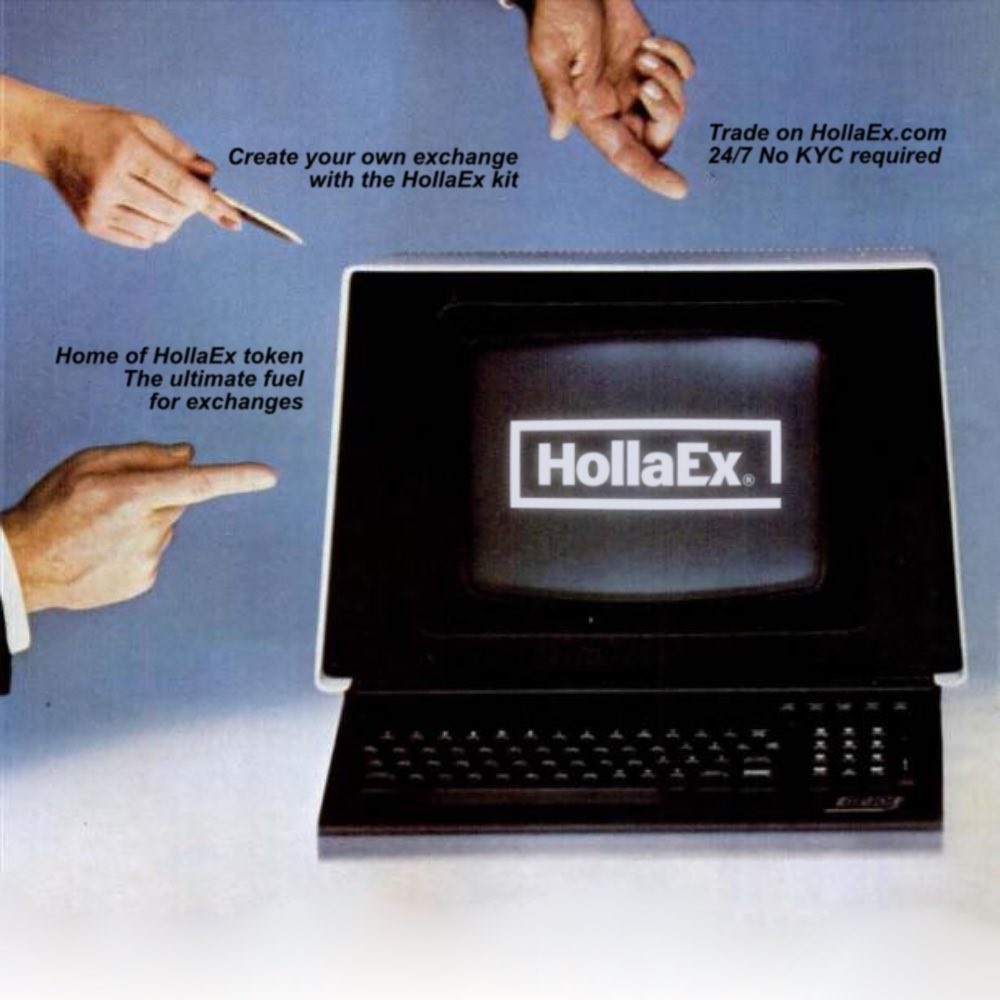
If you remember the early days of Bitcoin, you’ll remember there weren’t too many people who could predict its potential. Nowadays, of course, that’s another story.
But back when Bitcoin was just getting its start, Adrian Pollard helped create an app for Bitcoin enthusiasts to help them find and use it. And like most thriving businesses today, this idea evolved over time—for the better.
Given that the most popular use for Bitcoin is now trading, Pollard and his team eventually created open-source software that lets businesses easily start their own crypto business. They offer services like crypto trading and wallet storage, and the company, HollaEx, earns up to $115k per month during the “busy” crypto season (AKA, when prices rise).
Allow me to introduce Co-Founder, Adrian Pollard…
—
I am Adrian, the co-founder of HollaEx, an open-source software provider for cryptocurrency exchanges. HollaEx helps businesses use popular blockchains like Bitcoin and Ethereum and offers custom coins and services such as crypto trading and wallet storage in an open-source and accessible way.
HollaEx offers an easy-to-use dashboard for starting a crypto business in only five steps, which is unique to our exchange system. Normally, starting a crypto business requires many more steps, but HollaEx simplifies the process.

In the early days of Bitcoin, there were not many people who were aware of its potential. We wanted to build something useful in the Bitcoin space and started making an app for Bitcoin enthusiasts to find and use Bitcoin with each other.
From there, we evolved the service into what is now the most popular use case for Bitcoin: trading. We realized that the best way to get more people to use this technology was to make the exchange software itself easier to use, not just from a user and trader point of view, but also from a business operator’s point of view.
In the beginning, our system was closed-source and highly technical, only built for teams and businesses that already had some fundamental blockchain knowledge and a tech team. This made it quite difficult for many businesses to use. To make it easier for others to self-serve, we turned our system into an open-source one.
We started with prototyping, using Adobe Illustrator and static PDF files in the early days. Later, we upgraded to interactive mockups using Adobe XD. We created testnet versions using testnet blockchains to refine our product. We made many changes along the way, but our goal was always to create exchange technology that makes starting a business online with crypto simple.
Launching our company was challenging due to different countries’ tax laws. We moved our company matters to more favorable locations. Starting with a website and establishing our name early on was key, as branding, SEO, and business development all revolve around it. Establishing social media accounts aligned with our website and name was important to our success.

Building a good product and having time in the game have been key to attracting and retaining customers. Good customer service and communication channels for feedback have also helped. Providing real value through a good software, product, or service is essential. Loyalty programs have been effective in retaining long-term customers.
ID Software’s story on how they made the first-person shooter game DOOM was an influential business book. A Reddit AMA from the Reddit founder recommended it to me, and it was a great read.
Stories about music bands are also surprisingly relevant because bands face similar startup dynamics. The recent Red Hot Chili Peppers bio by Flea was particularly influential.
Max Keiser’s report on RT news and early interviews and podcasts with Pirate Party founder Rick Falkvinge were influential in my understanding of public blockchains and their fundamental value for business, commerce, and trade.
Like any other software provider in the world, there are ebbs and flows in our industry. However, this is particularly true for software and tech companies working in blockchain, and it has to do with the prices of coins, tokens, and other digital crypto assets. When prices rise, we tend to get busier, with many people looking to learn how to start their own crypto platform, and less so when prices fall.
Overall, I believe the future will be positive for the space, as there hasn’t been much progress made in traditional money systems yet. For example, there still hasn’t been much new development in banking, international payments, and currencies, which tells me that public blockchain systems like Bitcoin have a real chance of being established as an alternative money system.
It could also become a fundamental business rail for e-commerce, much like SWIFT and PayPal, for example, are relied upon for business online. This lends itself to money exchanges needing to offer crypto exchange services and all businesses having some sort of reserve in Bitcoin, which is where systems like HollaEx come in, providing all of these services in one software kit.
Just like how people use Excel and spreadsheets for their everyday businesses, it won’t be too far out until people may have inbuilt exchange system processes in their business workflow. This is particularly interesting if we still have competing fiat currencies, tokens, coins, and exotic digital assets like NFTs that can be exchanged easily.

For anyone thinking of going down the startup journey, particularly in online business, tech, and software, I would suggest considering infusing blockchain finance into your business, at least for some portion of your treasury.
This can start with just a wallet and accepting Bitcoin into your wallet, or even accepting a stablecoin if you are risk-averse, and just holding something outside of the traditional money system.
Then begin thinking about how you can tokenize parts of your business. For example, many businesses will, at some point, want to set up a rewards and loyalty system, which can simply be a token on the blockchain. These tokens can be then traded on an exchange and stored directly on your business website.
Simply follow us on HollaEx Twitter for the latest bite-sized updates, or for a more in-depth dive, visit the main website, HollaEx.
Monthly revenue $35,000 off crypto season, and monthly revenue $115,000 on crypto season.